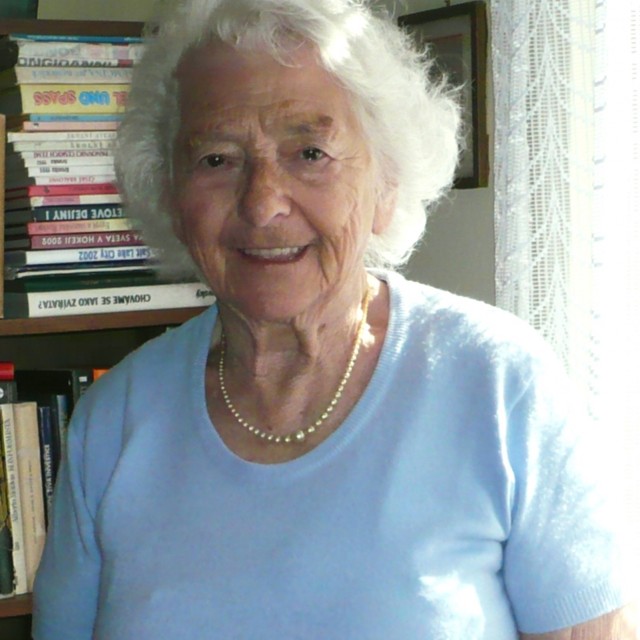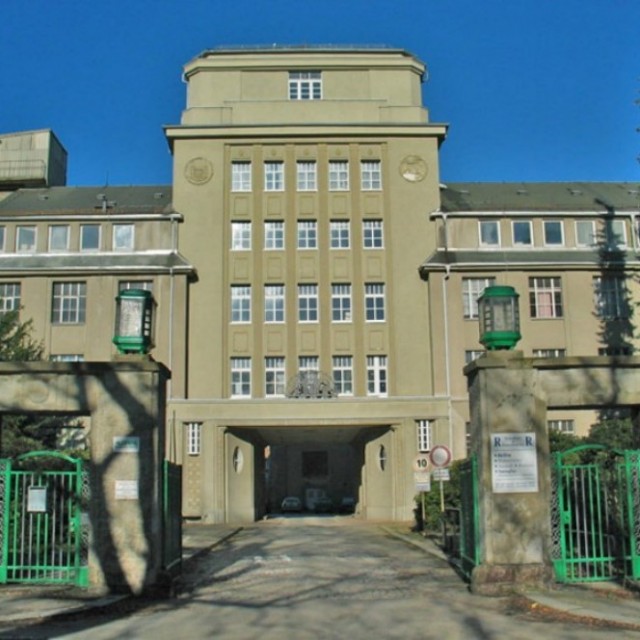Two Hundred People Standing in a Train Carriage
Helena Krouská came to the concentration camp Oederan from Auschwitz-Birkenau. “There were about 200 hundred people standing in one train carriage. I had a high fever and tonsillitis; I often suffered from it. The girls were so good and let me sit on the ground,” she remembered. The regime in Oederan was more bearable than in Birkenau and Helena had a friend who took care of her. Her name was Edita and she came from Poprad. “Edita was a melancholic person. She had a close relationship only with three of us and in time she confided to us that her brother was in a commando that put the dead into the ovens. When he discovered his parents amongst the dead, he started to rage and they shot him. And at that time Edita fell silent," Helena recalled.
Hodnocení
Abyste mohli hodnotit musíte se přihlásit!
Trasy
Příběh není součastí žádné trasy.
Komentáře

Helena Krouská
Helena Krouská, born Lamplová, was born in September 1921 in a Jewish family in Znojmo. Her father Josef Lampl was a veterinarian and an important member of the Moravian chapter of B'nai B'rith. In February 1938, her mother Anna died of cancer when she was only 42 years old. In the same year, after the German occupation of Austria, most of her closest relatives were living in the German sphere of influence. After the occupation of the Sudetenland, the rest of the family had to move from Znojmo to Moravské Budějovice. Soon after, her sixteen-year-old brother František left for Palestine in a group of children with an emigrant passport. In April 1942, her father Josef committed suicide in a Gestapo office in a hopeless situation after being interrogated. Helena and her grandparents were deported to the Terezín ghetto soon after. While in Terezín she married MUDr. Jiří Ganz. In October 1944, she left with him on a transport for Auschwitz-Birkenau, and shortly after she continued from there to the labour camp Oederan in Sachsen. She returned to Terezín during an evacuation at the beginning of May 1945. Jiří Ganz succumbed to an injury and serious disease in Dachau. After the war, Helena settled in Prague and she married again, to JUDr. Otakar Krouský. Together they raised two children from his first marriage and their son Jan. The couple maintain close contacts with people who were against the communist regime.




